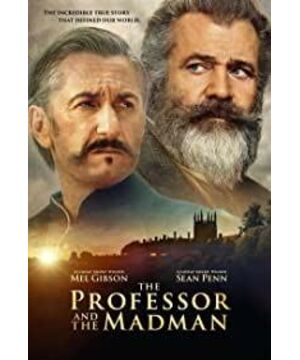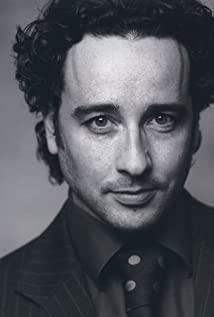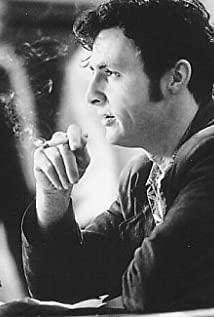As a dictionary practitioner, I have been following this movie a few years ago. When I do new staff orientation for the company’s newcomers every quarter, I always mention "The Book of the Ship" and "The Professor and the Madman", and then lament the fate of this movie. It’s too awkward, the filming has been finished with various litigation disputes, and the filming has been delayed. Even the original author doubts whether he can see the film before he died.
Fortunately, it finally came out this year.
But after I finally finished reading it, I really didn't want to put it in the same category as "The Zhoubian", but felt that it and "Genius Catcher" are more like brothers. "The Book of Ships" is really about the work and life of lexicographers, lexicographers, and "Professor and the Madman" is the same as "Genius Catcher", but with the background of dictionary/novel publishing industry, it is about family, friendship, love, teachers and students. Love, brotherhood, whatever love, is about legend.
I am most dissatisfied with this section of love. I rummaged through the original, and there are two paragraphs about the intersection between Miner and Mrs. Merritt (the two met for the first time in late 1879, when Miner was 45 years old, and Mrs. Merritt’s age is unknown, but Mr. Merritt’s year If he is not dead, he should be 41 years old. For the time being, Mrs. Merritt and Mr. Merritt are about the same age). I really want to know from these two passages, how did the film screenwriters perfuse this tangled emotion? You can’t help but love each other just because you are about the same age, right? The passages and lines like If love...then what are simply vulgar.
If you ignore all the ups and downs that are not in the original works (Oxford University Press is really not happy in this project that has dragged on for decades, but sadly becomes a total villain boss in this movie) and emotional entanglement, according to If I am a colleague who is also a dictionary practitioner, how can such a boring theme have a box office? In fact, we don’t know whether the topic of the dictionary is really boring in terms of layman’s interest, because when I read the original work, I was really only interested in the part of lexicography...
I guess the subtitles of the version that everyone is watching are the same, to correct a small mistake:
Romance languages are not romantic languages. They refer to the Romance languages of the Indo-European family. Post it on Wikipedia:
The language branch of the language family is a concept in linguistic research. Thousands of languages around the world are divided into more than one hundred language families.
Our Chinese belongs to the Sino-Tibetan language family. Those who are interested may wish to check the family branch distribution of Chinese and dialects , or intuitively look at the language map distribution of China .
Finally, I would like to mention another Korean movie "Dictionary" related to dictionary . This movie has nothing to do with the dictionary industry and publishing industry. It is a pure anti-Japanese patriotic drama. A group of aspiring people in the era of Japanese occupation during World War II wanted to preserve the Korean characters. Secretly collected dialects to compile a dictionary, and then a large number of people died, during which there were also gangsters. It seems to be based on real historical facts...
View more about The Professor and the Madman reviews











